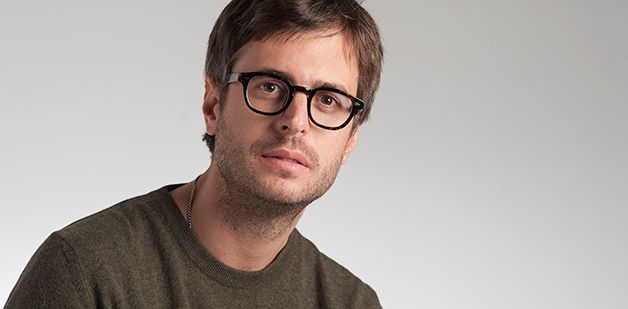Hubert Wykretowicz, hired by Prof. Friedrich Stiefel, works in the Liaison Psychiatry Service at the Lausanne University Hospital. A teacher and philosopher, he has given talks at several colloquiums. He favours a phenomenological approach to patients and their relationship with the world, the aim being to forge a new perception of illness.

As part of the Liaison Psychiatry Service for a little over a year, you have a different approach to illness, more positive in a way.
Yes, I think people have the wrong image of health in general, and healing in particular. Healing is seen as a return to a former state, a normal – and, hence, better – state. But this return to what the French philosopher and doctor Georges Canguilhem referred to as biological innocence doesn’t exist. Whatever my illness, by getting through it I equip myself with new resistances that I didn’t have before. Healed, I have arrived at a new state. The important thing with illness is to see what human beings are capable of and not just what they aren’t capable of anymore. Illness is not simply about loss or decline; it is about building a new balance, compensating. With influenza, a neurological problem or a mental collapse, we should also be looking at the constructive strategies employed by the organism and the person to safeguard themselves from total disorder – all the resources mustered to stay adapted to the environment. I didn’t come up with this idea; it has been stressed before by neurologists such as Goldstein and, more recently, Sacks.
But what kind of impact can this type of approach have on the therapist and the
patient?
Unlike biological or psychoanalytical approaches, the philosophical school I identify with, phenomenology, sees mental illness as a way of being in the world. Take depression, for example. Phenomenology sees it first of all as a certain way of existing, with oneself and with others, that has to be understood in its specificity – in its truth, dare I say – before we look at its genetic, neurobiological or instinctual causes. Using these kinds of explanations, which draw on the structure of human existence, phenomenologists have forged a precise understanding of conditions such as schizophrenia and depression. How can you establish a sound diagnosis, assess possible treatments or explore biological fundamentals if you haven’t understood what was in question in the illness?
“Illness is not just a deficiency”
Have there been any real-life impacts in terms of how patients are treated?
The influences of this way of thinking can be seen in some psychotherapeutic movements. The emphasis placed on the need for change in the systemic school is a good example, with therapists using a range of strategies to bring about a change in the patient’s relationship with the world, the aim being to free up new possibilities of existence where all the patient sees is a wall.
More generally speaking, phenomenology stresses that individuals should be considered in their entirety. Not just for moral reasons, which in themselves should be sufficient, but for scientific reasons too. I believe that “illnesses”, and mental illnesses in particular, are necessary abstract theoretical elaborations. That is, as long as we keep in mind that the illnesses come second to the ill people themselves, and their life stories, that they enable us to understand and explain. We have to stop perceiving the ill person as a particular case of a general pathology, since it is the opposite that is true. The medical art does not consist in classifying the patient in categories such as Depression (in philosophy this is called “subsuming”, basically what a computer is quite capable of). On the contrary, what makes this a great art is its capacity to use general categories to better understand the particular experience of a given patient. On that score, my philosophy has always been that what seems the most obvious is actually the hardest thing to see.
Hubert Wykretowicz, hired by Prof. Friedrich Stiefel, works in the Liaison Psychiatry Service at the Lausanne University Hospital.